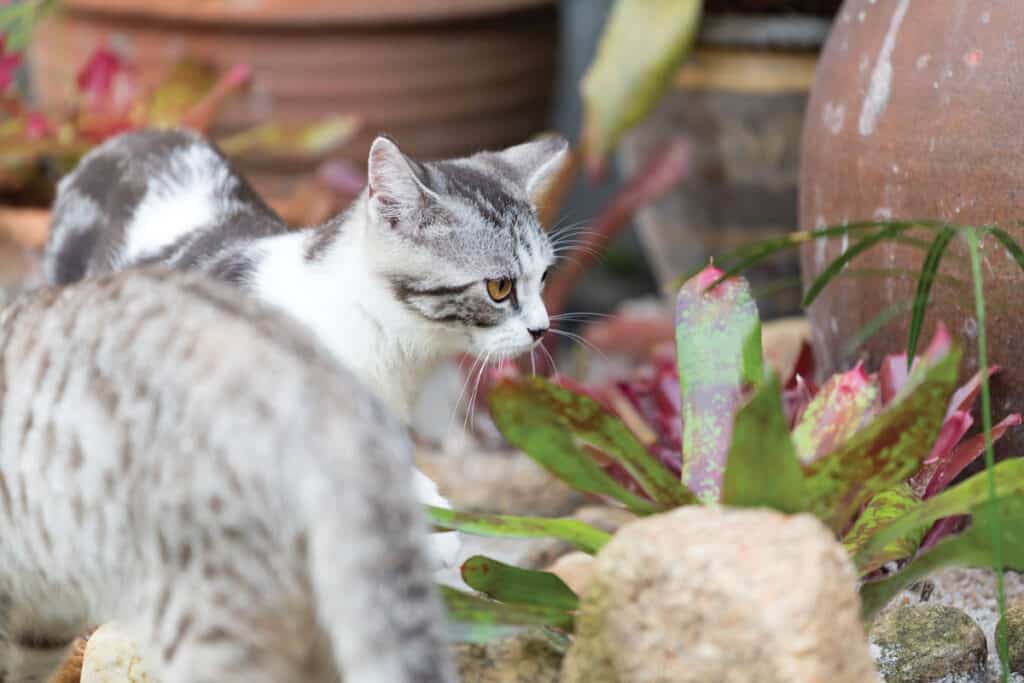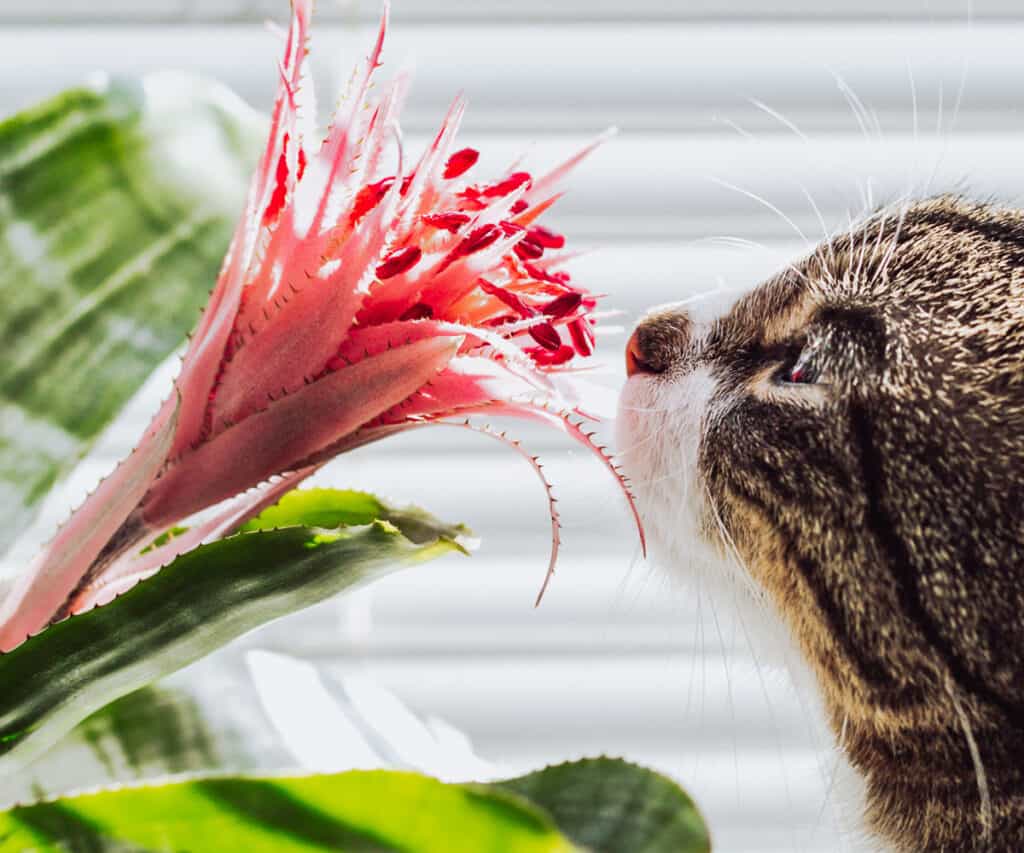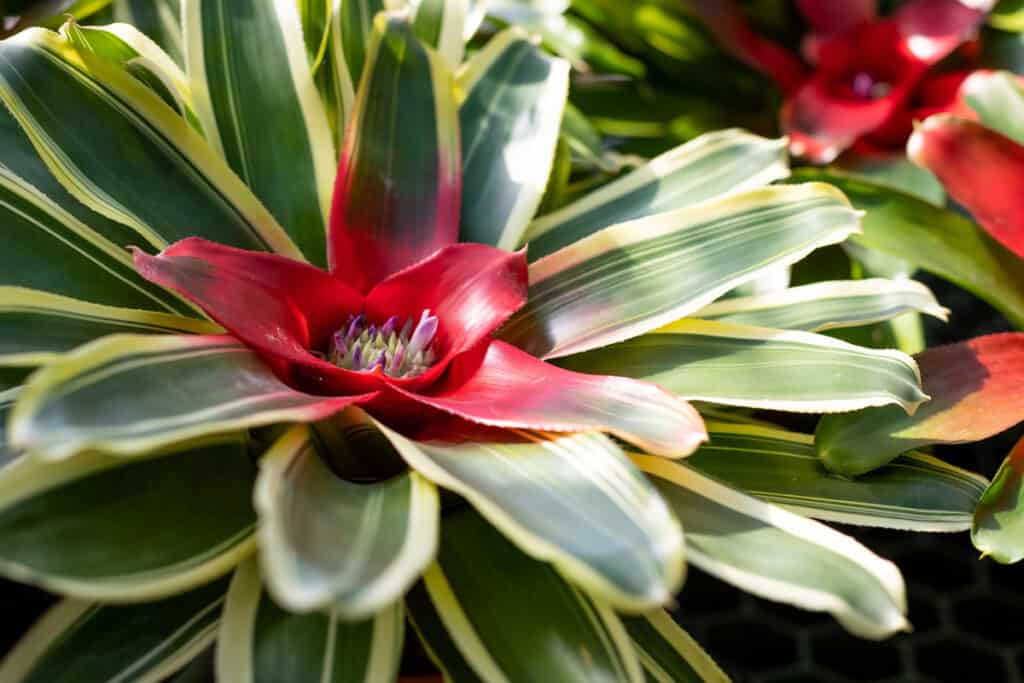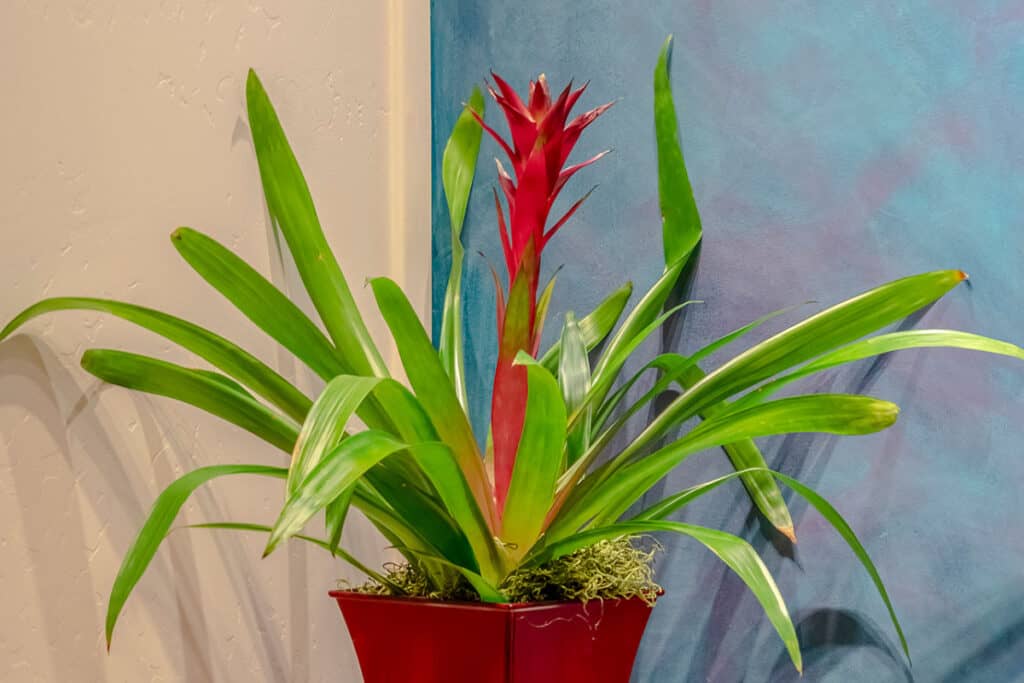If you’re a cat owner, you might be wondering if it’s safe to have bromeliads in your home. While they are beautiful and can bring a lot of life to a room, they can also be dangerous to cats if they are not handled properly.
Unfortunately, there is a lot of conflicting information out there about whether or not bromeliads are safe for cats. In this article, I’ll take a look at the facts and research to determine whether or not bromeliads are safe for cats.
We’ll explore the potential risks that come with bromeliad plants and what you can do to make sure your cat is safe from harm. We’ll also look at the benefits of having these plants in your home and how you can enjoy them without fear of harm to your beloved feline companion.

Contents
Are Bromeliads Safe For Cats?
Bromeliads are technically not poisonous, but they can cause allergic reactions in cats. The most common reactions are itchiness and skin irritation, so it’s important to keep an eye on your pet if you have a bromeliad in the house.
Pet owners should also take care to keep the bromeliad out of reach of cats. The plant’s sharp leaves can cause scratches and cuts, which can lead to infections. It’s best to place the plant in an area where cats can’t access it.
It’s also important to ensure that the bromeliad isn’t treated with any chemicals. Some fertilizers and pest control products can be toxic to cats, so it’s essential to read the labels carefully before using them on the plant.
Overall, bromeliads can be safely kept in homes with cats as long as pet owners take the necessary precautions. By keeping the plant out of reach and ensuring it’s not treated with any chemicals, pet owners can keep their cats safe from harm.
Are Bromeliad Leaves Poisonous?
When it comes to bromeliads, most people are concerned about their cats’ safety. After all, bromeliads are often mistaken for toxic plants. However, the leaves of bromeliads are not actually poisonous.
Bromeliads belong to a family of tropical plants, and they are not considered toxic. If ingested, the leaves of a bromeliad are not poisonous, and they are not considered a health hazard.
Are Bromeliad Flowers Toxic?

Although bromeliad flowers are not known to be toxic, it’s important to note that some cats can be allergic to them. Bromeliad flowers are often brightly colored, and they give off a sweet smell that can attract cats.
If ingested, certain bromeliad flowers may cause mild to moderate gastrointestinal distress in cats. Symptoms may include vomiting, loss of appetite, and diarrhea. So it’s best to keep your cats away from these flowers.
Fortunately, bromeliads don’t require much care and they’re easy to maintain as indoor plants. They need a bright spot in your home with indirect sunlight, so make sure to place them away from your cats.
By following these simple tips, you can enjoy the beauty of bromeliads without having to worry about the safety of your cats. Just remember to keep an eye out for the flowers, and to keep your cats away from them.
Frequently Asked Questions
Is Pineapple Bromeliad Toxic To Cats?
Pineapple bromeliad is generally considered to be non-toxic to cats. However, it is important to keep in mind that cats are curious creatures and may be inclined to chew on the leaves or stems of a pineapple bromeliad plant. If this occurs, it may cause mild irritation or gastrointestinal upset, including vomiting and diarrhea. It is therefore important to ensure that cats are kept away from these plants to avoid any potential health risks.
Is Bromeliad Aechmea Toxic To Cats?
No, bromeliad Aechmea is not toxic to cats. While cats may not be able to digest the plant’s leaves, it is generally not considered a dangerous plant for cats.
Is Blushing Bromeliad Toxic To Cats?

No, the blushing bromeliad is not toxic to cats. This plant is a popular houseplant due to its ease of care and its attractive pink flowers. The bromeliad is a member of the Bromeliaceae family, and all of its parts are considered non-toxic to cats and other animals. This means that cats can safely nibble on the leaves and flowers of the blushing bromeliad without any risk of toxicity.
However, it is important to note that the sap of the blushing bromeliad can be slightly irritating to the skin, so it is best to keep cats away from the plant in order to prevent any irritation.
Are Bromeliad Plants Edible?
When it comes to bromeliad plants, another common question is whether they are edible. Though bromeliads are not typically grown for food, some species of bromeliad do produce edible fruit, such as the pineapple and Bromelia.
The edible pineapple bromeliad is native to tropical regions of the Americas. It is a perennial evergreen plant and has a rosette of spiky leaves that can reach up to two meters in height. The pineapple fruit itself is a bright golden yellow, with a rough and scaly exterior. The sweet flesh inside is juicy and contains small edible seeds. The fruit is incredibly healthy and is rich in vitamins, minerals, dietary fiber, and antioxidants. Pineapple bromeliads are also very easy to grow, making them a popular choice for home gardeners.
The Bromelia fruit is another edible member of the Bromeliaceae family. It is much smaller than the pineapple bromeliad and is most commonly found in tropical areas of South America. Unlike pineapple, its fruits are less tasty, and there aren’t many on each plant.
Do Bromeliads Bring Mosquitoes?
Bromeliads do not necessarily bring mosquitoes, but they can act as a breeding ground for them. Mosquitoes require standing water to lay eggs, and if the bromeliad is not kept well-drained, it can provide a perfect spot for them to lay eggs. To prevent mosquitoes from breeding in a bromeliad, it is important to make sure the water is changed or emptied out every few days and that the potting soil is well-drained.
Additionally, as bromeliads are tropical plants, they should be kept in a warm and humid environment, which is also conducive to mosquito breeding. It is therefore important to ensure that the environment is not too humid for the bromeliad to thrive.
Do Bromeliads Purify The Air?
Bromeliads are well known for their air-purifying abilities. Studies have shown that they can absorb volatile organic compounds (VOCs) from the air, such as formaldehyde, which is a common indoor air pollutant. Bromeliads also absorb carbon dioxide and release oxygen, which improves air quality and helps to reduce indoor air pollution.
In addition, bromeliads are known to reduce airborne mold spores, bacteria, and other allergens, making them a great choice for those with allergies or asthma. They can also help to reduce odors in the home, and their beautiful foliage adds a decorative touch to any room.
Are Bromeliads Indoor Plants?

When it comes to bromeliads, one of the most common questions is whether or not these plants can be kept indoors. The answer is yes, bromeliads can be kept indoors as long as they receive plenty of light and are kept in temperatures between 60-80°F.
Bromeliads are a type of tropical plant, so they need more humidity than other houseplants. To increase the humidity, you can set the bromeliad on a tray of pebbles filled with water, or mist the plant with a spray bottle.
It’s important to note that while bromeliads can be kept indoors, they’re generally happiest in an outdoor environment. If you can provide your bromeliad with enough light and humidity, they will thrive in an outdoor setting.
Bromeliads are a great addition to any indoor or outdoor space, and they’re sure to bring a touch of tropical beauty to your home. With proper care and attention, your bromeliad can thrive for many years to come.
Conclusion
Cats and bromeliads can make a great combination when proper precautions are taken. Bromeliads are generally considered to be safe for cats, however, some cats can be allergic to them.
Therefore, it is important to take steps to ensure that cats are not ingesting any parts of the bromeliad. This can be done by providing plenty of other safe plants for cats to explore, as well as making sure that the bromeliad is out of reach from curious cats.
In conclusion, bromeliads can be a great addition to a home with cats, as long as the proper precautions are taken. With the right research and care, owners can provide their cats with an interesting and safe environment.
